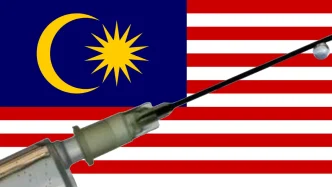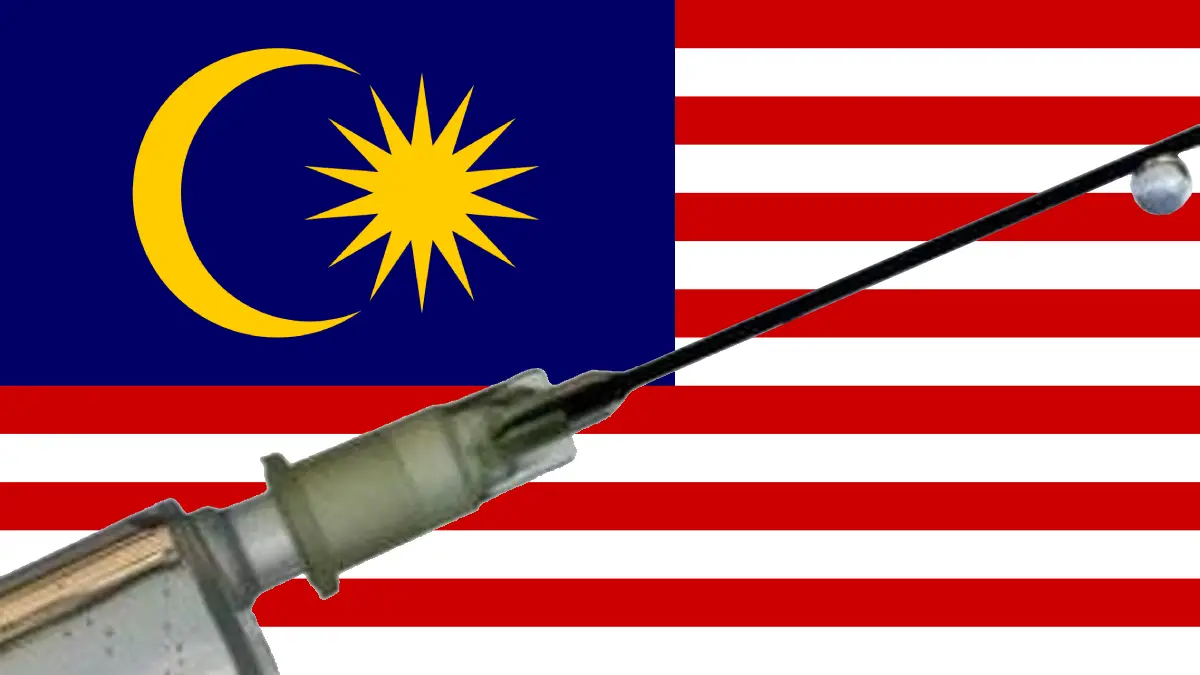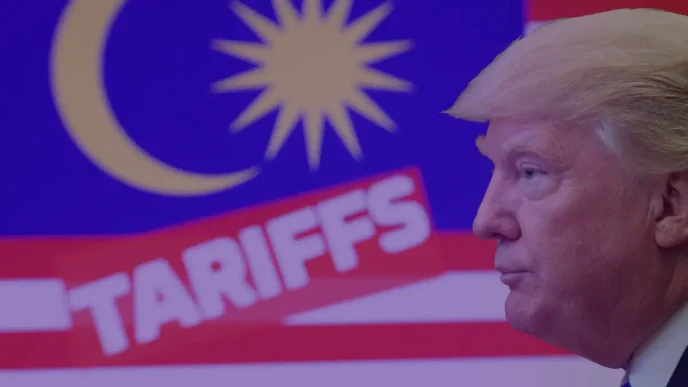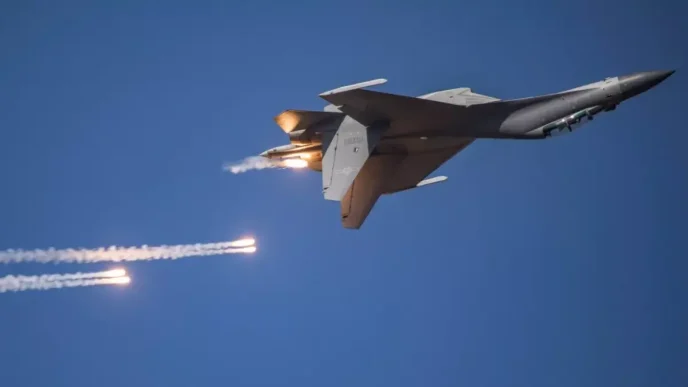In a shocking incident that has gripped Malaysia, the 12-year-old son of former Economic Affairs Minister Datuk Seri Rafizi Ramli was attacked with a syringe by an unidentified assailant in a Putrajaya shopping center car park on August 13, 2025. The brazen assault, described by Rafizi as premeditated, has raised serious questions about the safety of public figures and their families, while prompting a swift response from authorities and political leaders.
A Calculated Assault in Broad Daylight
The incident occurred at approximately 1:45 p.m. as Rafizi’s wife and son were preparing to leave the shopping center. According to a statement from the former minister, an unidentified man suddenly approached, grabbed his son, and jabbed him with a syringe before fleeing. Rafizi revealed that two men on a motorcycle, dressed entirely in black and wearing full-face helmets, had been tailing his wife’s car prior to the attack. “They had waited earlier and rushed to attack my son at the right moment” he stated on August 13, 2025.
The child was immediately rushed to Universiti Putra Malaysia Hospital for medical attention, where he received treatment. Police arrived at the scene shortly after the incident, and Rafizi, along with his family, provided statements to investigators. Expressing gratitude for the prompt response, Rafizi urged that further details regarding the investigation and medical examination be released by the police and hospital authorities. “Any further information on the incident, investigation, and the doctor’s examination results should be issued by the police and the hospital” he said on the same day.
Political Motives and Personal Threats
Rafizi, a prominent figure in Malaysian politics and a member of the People’s Justice Party (PKR), described the attack as a first for his family, alleging it was intended “a warning … not to speak out on certain issues” he stated on August 13, 2025. While he did not specify the issues in question, his assertion points to the possibility of political motivations behind the assault, a concern that resonates deeply in a country where political discourse can often be contentious.
Mr Rafizi revealed that threatening messages have been sent to his wife following the attack on their 12-year-old son. One of the messages appeared to threaten their son with Aids infection, reading “Shut up! If you continue, AIDS!”, followed by three syringe emojis, he said.
Despite the personal nature of the threat, Rafizi remained defiant. “While I will take steps to enhance security measures, I will not bow to any threats and will continue to carry out my duties as usual” he added in his statement. His resolve underscores a broader tension faced by public figures in Malaysia, where personal safety can become entangled with political activity.
Government and Public Response
The incident has elicited a strong reaction from the highest levels of government. Prime Minister Anwar Ibrahim called for an immediate probe into the assault, emphasizing the need for a thorough investigation. The Home Ministry echoed this sentiment, assuring the public that the investigation would be conducted without fear or favor. This commitment to impartiality is crucial in a case that could easily be politicized, given Rafizi’s history as a vocal government official and opposition figure.
The attack has also drawn attention in Malaysia’s legislative circles. The Speaker of the Dewan Rakyat, the lower house of Parliament, has requested a detailed explanation from the Home Ministry regarding the incident. This move signals the gravity with which the political establishment views the assault, as well as the potential implications for the safety of other public officials and their families.
Broader Implications for Public Safety
The assault on Rafizi’s son is not merely a personal tragedy but a stark reminder of the vulnerabilities faced by those in the public eye in Malaysia. Putrajaya, often seen as a secure administrative capital, is not immune to such acts of violence. The incident raises pressing questions about the adequacy of security measures in public spaces and whether targeted attacks on families of politicians could become a disturbing trend.
Malaysia has seen its share of political turbulence in recent years, with intense rivalries and polarized debates often spilling into public life. While physical attacks on politicians or their families are rare, this incident could set a dangerous precedent if not addressed decisively. The use of a syringe as a weapon adds an additional layer of concern, prompting speculation about the assailants’ intentions—whether to harm, intimidate, or send a symbolic message.
Public reaction, as reflected in local reports, has been one of shock and outrage. Many Malaysians view the targeting of a child as crossing an ethical line, regardless of political affiliations. The incident has sparked discussions about the need for stricter laws to protect the families of public figures and harsher penalties for those who perpetrate such acts. It also highlights the broader issue of personal security in a digital age, where tracking and targeting individuals has become easier through surveillance and social media.
Political Context and Rafizi’s Legacy
Rafizi Ramli, who served as Minister of Economic Affairs from 2022 to 2023 under Anwar Ibrahim’s administration, is no stranger to controversy. Known for his outspoken critiques of economic policies and governance issues, he has often been a polarizing figure. His tenure saw efforts to address cost-of-living challenges and implement reforms aimed at economic inclusivity, though not without criticism from various quarters. Since stepping down from his ministerial role, Rafizi has remained active in politics, continuing to voice opinions on national issues—a stance that may have drawn ire from certain groups.
While there is no verified evidence linking the attack to specific political adversaries or issues, Rafizi’s assertion of a warning suggests underlying tensions. Malaysia’s political landscape is complex, with coalitions and rivalries shaping public discourse. The PKR, part of the ruling Pakatan Harapan coalition, has faced challenges from opposition groups and internal dissent, creating a backdrop where personal vendettas or political intimidation could manifest in extreme ways.
The incident also comes at a time when Malaysia is grappling with broader security concerns, including rising crime rates in urban areas and the need for enhanced public safety measures. The government’s response to this attack will likely be seen as a litmus test of its commitment to protecting not just its citizens but also those who have served in public office.
Legal and Investigative Challenges
The investigation into the attack faces several hurdles. The assailants’ use of full-face helmets and coordinated approach suggests a level of planning that could complicate efforts to identify and apprehend them. The involvement of a syringe introduces additional concerns about potential health risks to Rafizi’s son, including the possibility of exposure to harmful substances. Medical reports will play a critical role in determining the full impact of the assault, while forensic analysis of any evidence left at the scene could provide crucial leads.
The Home Ministry’s pledge to conduct the investigation without bias is a positive step, but public trust in the process will depend on transparency and results. Past incidents involving high-profile figures in Malaysia have sometimes been marred by allegations of cover-ups or inadequate follow-through, making it imperative for authorities to handle this case with utmost diligence.
Looking Ahead: A Call for Unity and Vigilance
As the investigation unfolds, the attack on Rafizi Ramli’s son serves as a sobering reminder of the personal costs of public service. It challenges Malaysia to reflect on how far political disagreements should extend and whether the families of politicians should ever be considered fair targets. The incident could galvanize efforts to strengthen security protocols for public figures, as well as spark a broader societal debate on the boundaries of political conflict.
For Rafizi, the path forward involves balancing personal safety with his commitment to public engagement. His determination not to be silenced is a testament to his resilience, but it also underscores the precarious nature of political life in Malaysia. As authorities work to uncover the motives and identities behind this attack, the nation watches closely, hoping for justice and a reaffirmation that such acts of violence have no place in a democratic society.
The coming weeks will be critical in shaping the narrative around this incident. Will it be a turning point for how Malaysia addresses the safety of its public figures, or will it fade into the background as just another unresolved case? Only time, and the diligence of those tasked with protecting the nation’s values, will tell.













